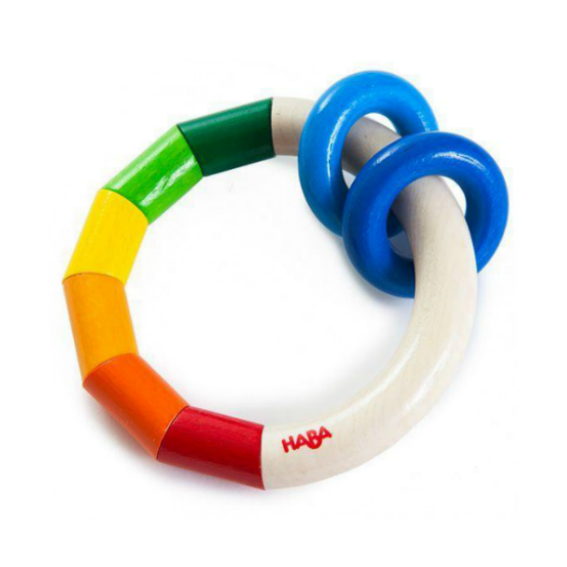Loving our kids helps us to heal these unloved areas inside.
The well-known psychologist D.W. Winnicott talked about that kids don’t need perfection from their mom and father; all we now have to do is avoid harming them, and
to provide them the “weird devotion” which has always been required of parents.
Nevertheless sadly, most mom and father don’t uncover this pretty very easy.
Because of, to start with, there could also be nothing weird about devotion. Devotion, as mom and father know, is strolling the bottom at 2am holding
a screaming youngster with an ear an an infection. Devotion is popping off your screens to play a board sport alongside together with your kids. Devotion is forcing your self
into the kitchen to make your child dinner after an prolonged day, when all you actually need is to curve up on the couch and return a reputation to a pal.
Devotion is taking off your jacket on a cold night time time to tuck it spherical a sleeping child throughout the once more seat of the car.
This weird devotion is analogous intense love that has triggered mom and father all by human historic previous to hurl themselves between their child and hazard, from flying glass to snarling wolves to enemy troopers.
Nevertheless even when, most of the time, we categorical our devotion in our willingness to position our kids first, it is nonetheless not easy to be a “okay”
mom or father.
Because of even we devoted mom and father normally inadvertently scar our kids. This consists of mom and father who adore their kids, who could be totally
heroic and self sacrificing if the situation known as for it. The reason is that whereas we’d under no circumstances consciously hurt our child, lots of
parenting, like every relationship, happens exterior of our acutely conscious consciousness.
The fact is that almost all of us have been wounded as kids, and if we don’t heal these wounds, they cease us from parenting our kids optimally. If there’s an area the place you will have been scarred as a child, you could depend upon that area inflicting you grief as a mom or father — and wounding your child.
We’ll all think about examples: the daddy who unwittingly repeats his father’s judgmental parenting alongside along with his private sons. The mother who can’t set
limits on her kids’s conduct because of she is going to be capable of’t bear their anger at her, and ends up elevating anxious, self-centered kids. The mom and father who
work prolonged hours at their jobs, leaving their infants throughout the care of nannies, because of they doubt their very personal capability to be enthusiastic about (translate:
to love) their infants.
The good news is that being mom and father presents us an opportunity to heal ourselves. Most mom and father say that loving their kids has
reworked them: made them further affected particular person, further compassionate, further selfless. Loving our kids helps us to heal these unloved areas inside.
In reality, if we focus, our kids have an unerring capability to point us our wounded areas. Greater than the best zen grasp or therapist,
our kids draw out our unreasonable fears and angers. Being mom and father presents us the right different to develop and heal. Most of us
run from this tough inside work, nevertheless what larger motivation than our love for our kids? Nearly magically, as our wounds rework, we uncover
that these hurt areas inform us, encourage us, make us larger mom and father. And happier people.
So how can we heal our private scars, to turn into the mom and father our kids deserve?
1. Get Curious.
If we focus, we uncover the place we’re over-reacting, the place we now have to take a look at our private “stuff”. And in reality, most of it is our private stuff.
Not that kids don’t act like kids — they always do, and that’s age relevant. Nevertheless everyone knows that what triggers some mom and father could be greeted
by others with a relaxed, warmth angle that helps kids WANT to behave — which tells us that these are our explicit particular person factors. So each time we
get “triggered,” we now have came upon one factor that desires therapeutic. Severely. Your child is conscious of push your buttons, nevertheless these buttons come
out of your private childhood.
2. Break the cycle by using your inside Pause button.
You don’t should repeat historic previous alongside together with your kids. Even within the occasion you are already successfully down the improper path, STOP. Take a deep breath, and hit the pause button.
Remind your self of what is about to happen till you choose one different course. Stroll out of the room. Don’t be embarrassed; you’re modeling good
anger administration. It’s once you’ve acquired a tantrum that you could be embarrassed. (See Coping with Your Private Anger.)
3. Understand how emotions work.
Anger is a natural state. As soon as we’re throughout the grip of the chemical reactions that make us “offended,” we do and say points we’d under no circumstances choose
to do in every other case. When your physique and emotions are in “fight or flight” mode, your child always appears identical to the enemy. Take a breath and wait
till you compromise down.
4. Mirror by your self “story.”
If you happen to occur to had a painful childhood, you could’t change that. Nevertheless what you could change is what you’re taking with you from that childhood. Your “story.”
You do that by reflecting on it, feeling the painful feelings, however as well as considering new angles. In case your father abandoned the family and in addition you
concluded that you just weren’t okay, it’s time to set the doc straight and understand, out of your grownup vantage degree, that you just have been further
than adequate and his leaving had nothing to do with you. In case your mother hit you and in addition you concluded that you just have been not directly harmful inside, a further appropriate
understanding could be that your mother was frightened and would have hit even primarily essentially the most angelic child on the earth. You have got been similar to any
child: reaching out for love and a highlight within the one strategies you knew. Coming to phrases alongside together with your story and rewriting it might be a painful course of,
but it surely certainly’s liberating. It’s moreover the one path to being the mom or father you could be to your child.
5. De-Stress.
All of us have a extra sturdy time being the best mom and father we could be after we’re wired. Develop a repertoire of habits that can help you de-stress: frequent
prepare, yoga, scorching baths, meditation. Can’t uncover the time? Include your entire family. Positioned on music and dance collectively, go for a stroll throughout the
woods, put everyone to mattress with books early on Friday night time time for a quiet, fulfilling night time and catching up in your sleep.
6. Get assist in working by means of earlier factors.
Parenting assist groups could be invaluable in supporting you to re-frame your parenting positively. Treatment and coaching are designed to help
you heal earlier factors and switch forward further thankfully in your life. There is not a shame in asking for help. The shame is in reneging in your obligation
as a mom or father by damaging your child bodily or psychologically. If you happen to occur to suppose you want help, please don’t wait. Attain out now.
No mom or father is good, because of individuals are by definition imperfect. No matter how lots we work on ourselves, we can’t always have an effect on our kids
positively. However once we focus, use our inside Pause buttons, mirror on our private experience, and maintain our stress at manageable ranges,
we are going to lower the harm we do our kids.
And, thankfully, Winnicott seems to have been applicable. Our children don’t need perfection from us. Evaluation has confirmed that if we meet their bodily,
emotional and psychological desires, we are going to usually depend upon the growth essential of mother nature herself to nurture our kids into primarily
healthful adults. And the areas they’re quirky? That merely makes life further attention-grabbing.
Click on on proper right here to take a look at Dr. Laura’s films on emotional regulation, “Every Guardian’s Amount One Responsibility” and “When the Wounds of Your Childhood Affect Your Parenting.”






